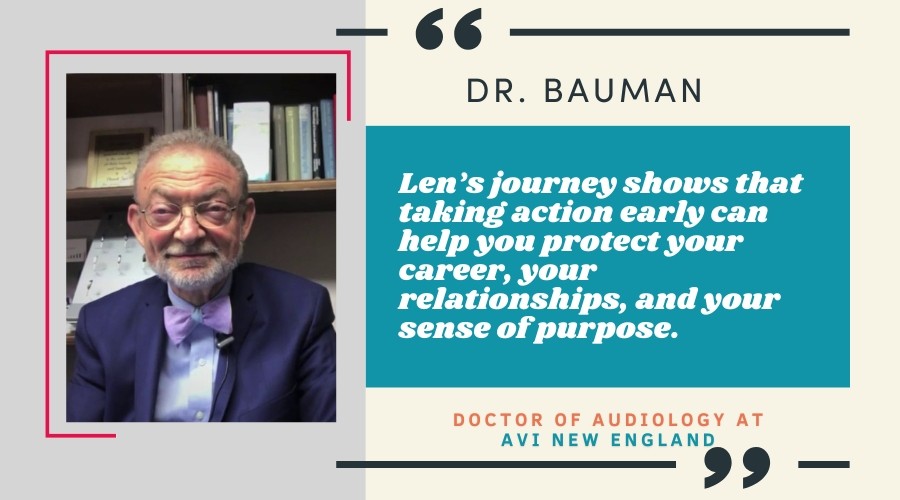
|
Dr. Natan Bauman
|
Mar 19, 2025
Presbycusis, or age-related hearing loss, affects a sizable portion of older adults and can bring about substantial emotional and practical challenges. It's natural to feel overwhelmed or isolated when confronted with these changes, but it's crucial to remember that you're not alone.
With the expert care and support from hearing care professionals, there are effective paths forward to help you hear and connect with the world—and the people—you love.
Identifying Presbycusis Early
Recognizing the early signs of presbycusis is key to taking control of your hearing health.
Perhaps you've found yourself straining to catch parts of conversations or turning the volume up higher than usual. These subtle indicators, while easy to overlook, are essential signals that your hearing might be changing.
Addressing these early can prevent exacerbation of hearing loss and open up a wider range of treatment options. Early intervention is especially important, as it ensures a better fit for hearing aids and a smoother adjustment period, enhancing your day-to-day interactions and overall quality of life.
Understanding the Causes
Presbycusis isn’t just a random occurrence; it’s often the result of natural changes in the inner ear as we age, as well as genetic factors and long-term exposure to loud noises. Knowing these causes can help you better understand your condition and potentially mitigate its progression through protective strategies and lifestyle adjustments.
Treatment Strategies
Each experience with hearing loss is unique. Advanced hearing aids, customized for presbycusis, can make a world of difference in how you experience sound.
These devices are not one-size-fits-all; they’re precisely adjusted to cater to the nuances of your hearing profile. Our seasoned audiologists are here to guide you through selecting the best device, ensuring it fits well and meets your needs effectively.
Lifestyle Adjustments
While hearing aids play a significant role, small lifestyle modifications can further ease the management of presbycusis. Consider reducing background noise during conversations, for instance, by choosing quieter settings when dining out or engaging in group settings.
Position yourself to directly face the speaker, allowing you to better catch visual cues such as facial expressions or lip movements, which naturally complement auditory input.
Although these strategies are helpful, expert hearing care can offer greater freedom in how you engage with your surroundings.
Living with presbycusis can be emotionally taxing, as hearing loss often leads to feelings of frustration or isolation. Remember, seeking support—from family, friends, or professionals—is vital. Sharing your experiences and challenges reduces feelings of isolation and can foster a supportive network eager to help you navigate this journey.
Start Your Hearing Health Journey
Deciding to take that first step toward addressing your hearing is a powerful decision. At AVI New England, we invite you to schedule a comprehensive hearing test or consultation.
Our team is ready to walk this path with you, offering solutions that not only improve your hearing but also enrich your life.
Rediscover the joy in conversations, music, and the simple sounds of life that bring comfort and connection. Let us help you hear the life you love – because every moment should be heard.
Request a callback to get in touch with our team, and we’ll contact you as soon as possible to help. Alternatively, you can give us a call at (475) 227-0842.





















